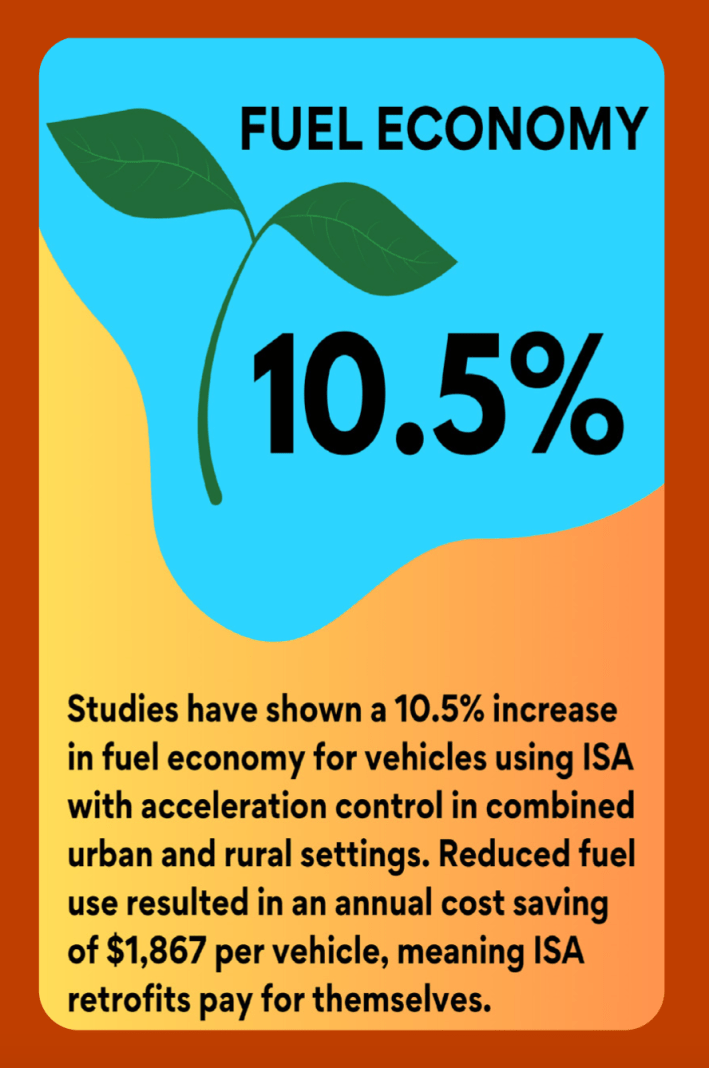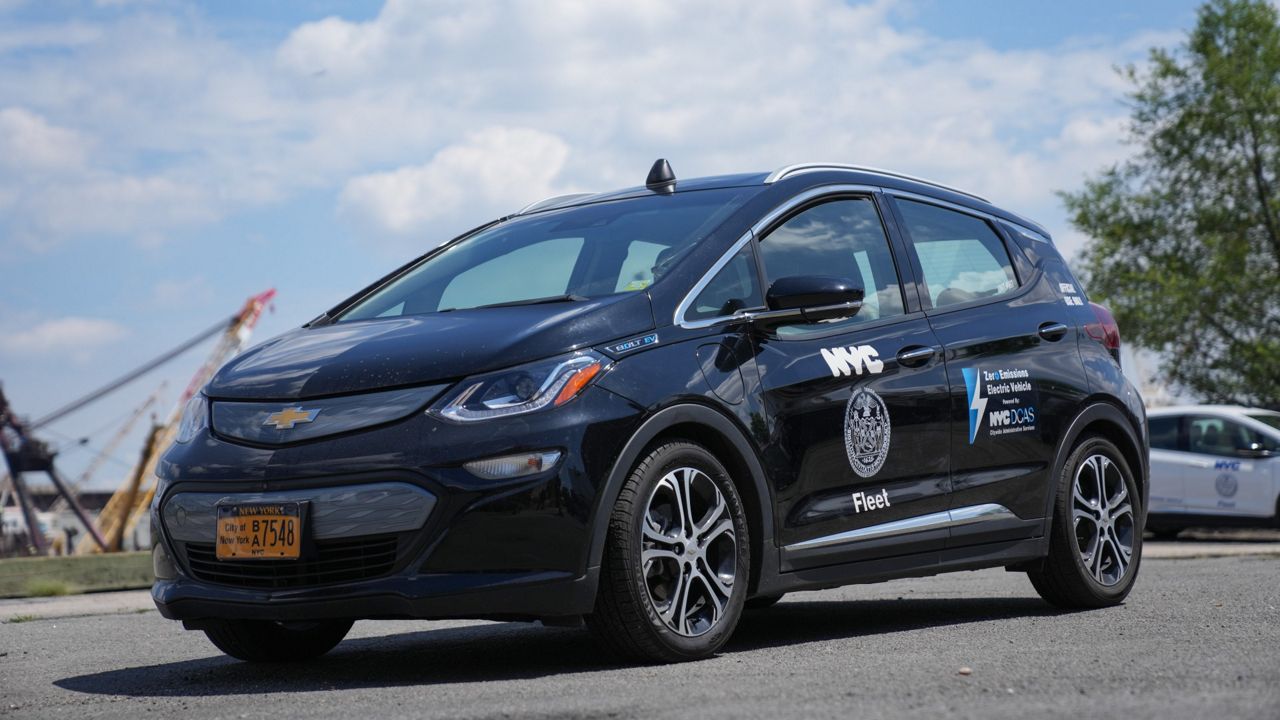Some of America's most prominent sustainable transportation advocacy organizations are challenging governments to embrace a ground-breaking technology that makes it impossible for drivers to speed — starting with the vehicles in their own fleets.
In a webinar aired last week, a coalition of nonprofit leaders announced an ambitious goal to get 50 United States communities to install Intelligent Speed Assist (ISA) technology on at least a portion of their municipally-owned fleets by 2025 — an effort they're calling the Safer Fleets Challenge.
Already required on new cars in Europe and piloted on city-owned vehicles in New York City and elsewhere, ISA systems use GPS or road-sign recognition cameras to detect the current limit, and either warn the driver to slow down when they exceed it or automatically throttle the car's velocity, with an override option that allows motorists to speed up briefly to pass.
If municipalities accept the challenge to demonstrate the life-saving potential of ISA on U.S. roads, the team behind the campaign hopes that it will demonstrate to federal regulators that all cars should come equipped with it by law.
"It's hard for me to understand why public employees, [if they’re not operating] emergency vehicles, should violate the speed limits set by their own government," said Mike McGinn, executive director for America Walks, which is leading the effort.
"I think it's a it's a great starting point to build acceptance, build understanding, and ultimately, lead to broader safety standards."
For McGinn and his co-panelists, the fact that those standards aren't already in place, despite the fact that speed limiters have been around since the early 80s, is a sign that American transportation officials don't view exceeding the speed limit as a major problem — even though it was a factor in 29 percent of crash fatalities in 2020 alone.
And the drivers of publicly-owned cars certainly aren't immune to lead-foot syndrome, either: A 2020 study of vehicle telematics data in San Francisco found over 148,000 separate instances of the drivers of municipal cars exceeding the speed limit by at least 10 miles per hour — and that data excluded many vehicles not yet equipped with telematics systems, including all of the city's police patrol cars.
In Ventura County, Calif. a similar analysis logged incidences of non-emergency services employees driving as fast as 103 miles per hour, prompting the region to begin its own ISA pilot.
"If this was their vehicle, they probably wouldn't drive them like that," said Jorge Bonilla, who manages the county's fleet.

Despite some grumbling from employees, Bonilla said the program has been mostly well-received in the region, which has reduced speeding 99 percent among retrofitted vehicles, reduced hard-braking events by 36 percent, and relieved supervisors of the responsibility of disciplining their most dangerous drivers by simply making speeding impossible.
Data from other cities suggests that ISA will have other benefits for the region over time; one study found that the fuel savings alone from limiting drivers' top speeds paid for the technology's installation in under a year, while reducing emissions to boot.
And that's to say nothing of the astronomical savings due to avoided damage to infrastructure, hospital bills, and lawsuits when city vehicles are involved in speeding-related crashes.
"I just think about when I was a council member, how many cases we had to take on where people would sue the city [after a crash]," said Erica Gilmore, metropolitan trustee for the city of Nashville. "It would happen quite often ... Greater safety, of course, would lead to budget savings over the long run for cities and towns."
The panelists acknowledged that before those savings come in, cash-strapped municipalities may struggle to find the start-up money necessary for a speed limiting pilot, which costs roughly $1,100 to $1,250 per retrofitted vehicle up front.
They also acknowledged that ISA isn't a silver bullet for all dangerous driving behaviors – and it certainly won't stop city employees from reaching deadly speeds when local speed limit signs and road designs actively encourage them.
Still, considering that fleet retrofits can generally be requested by executive order alone — and that America Walks has even provided a template for officials to quickly write their own — forward-thinking leaders are long overdue to finally pluck this low-hanging fruit, and help cement the case that Intelligent Speed Assist belongs on every U.S. vehicle.
"This is not something cutting edge," said Cathy Chase, president of the Advocates for Highway and Auto Safety.
"This is the U.S. falling behind and needing to catch up what's happening in other countries ... If you ask a parent if they would like to have this technology in their cars for their teenagers, I would venture to guess almost every parent would say yes. If we want it for our teenagers, we should want it for everyone — because everyone is sharing the roads with each other."
View a printable fact-sheet about the Safer Fleets Challenge here.






